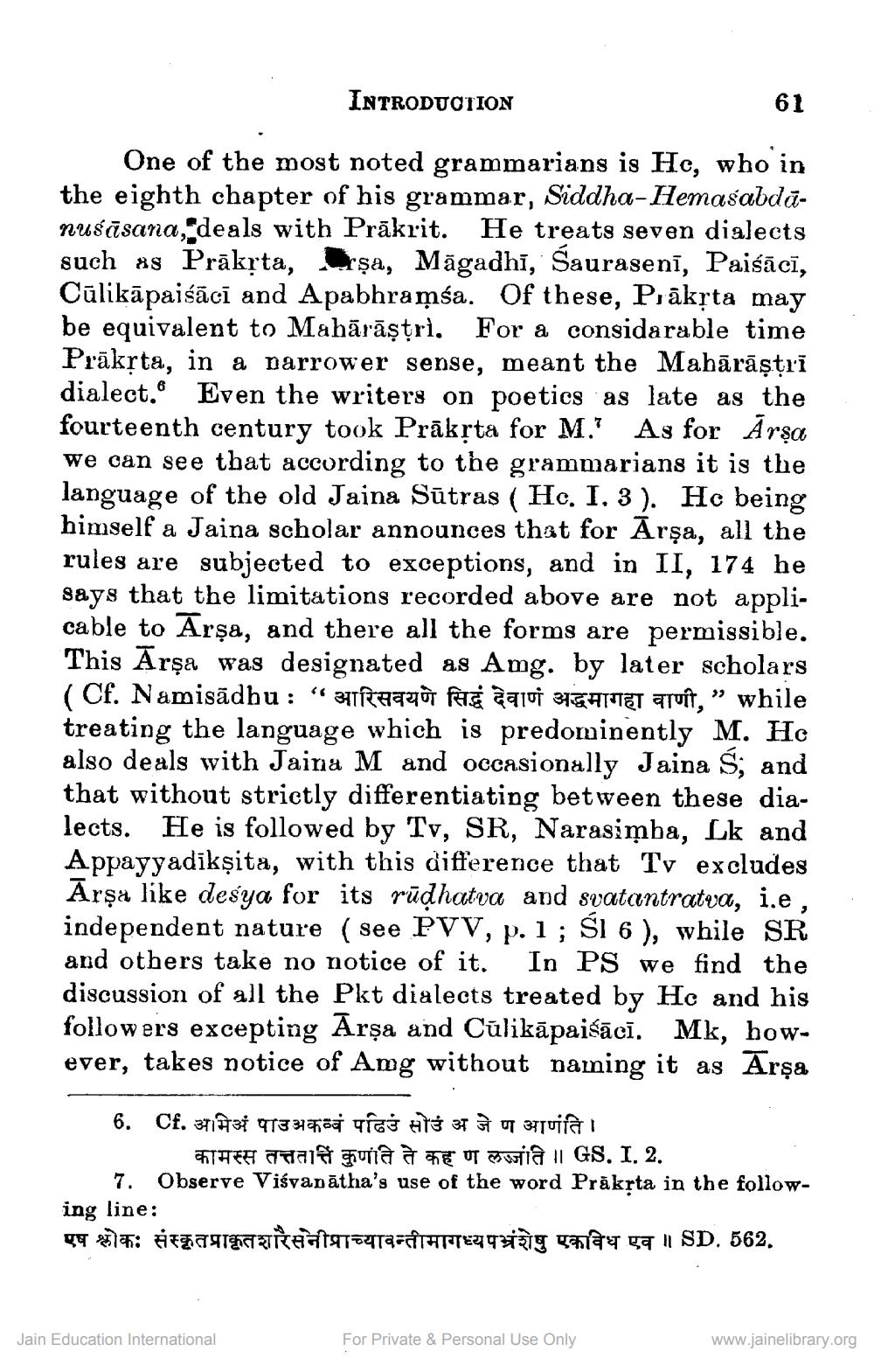________________
INTRODUCTION
One of the most noted grammarians is He, who in the eighth chapter of his grammar, Siddha-Hemasabdanusāsana, deals with Prakrit. He treats seven dialects such as Prakṛta, rṣa, Māgadhī, Śaurasenī, Paiśācī, Culikāpaiśāci and Apabhramsa. Of these, Prākṛta may be equivalent to Mahārāṣṭri. For a considarable time Prākṛta, in a narrower sense, meant the Mahārāṣṭrī dialect. Even the writers on poetics as late as the fourteenth century took Prākṛta for M. As for Ārṣa we can see that according to the grammarians it is the language of the old Jaina Sutras (Hc. I. 3). He being himself a Jaina scholar announces that for Arşa, all the rules are subjected to exceptions, and in II, 174 he says that the limitations recorded above are not applicable to Arṣa, and there all the forms are permissible. This Arsa was designated as Amg. by later scholars (Cf. Namisādhu: "Rug i zner art," while treating the language which is predominently M. He also deals with Jaina M and occasionally Jaina Ś; and that without strictly differentiating between these dialects. He is followed by Tv, SR, Narasimha, Lk and Appayyadikṣita, with this difference that Tv excludes Arsa like desya for its ruḍhatva and svatantratva, i.e, independent nature (see PVV, p. 1; Śl 6), while SR and others take no notice of it. In PS we find the discussion of all the Pkt dialects treated by He and his followers excepting Arșa and Culikāpaiśācī. Mk, however, takes notice of Amg without naming it as Arşa
6.
Cf. अभिअं पाउअकब्बं पढिउं सोउं अ जेण आणंति ।
कामस्स तत्तता कुणांत ते कह ण लज्जति ॥ GS. I. 2.
7. Observe Viśvanatha's use of the word Prakṛta in the following line:
एष श्लोकः संस्कृतप्राकृत शारै सनीप्राच्यावन्तीमागध्यपभ्रंशेषु एकविध एव ॥ SD 562.
Jain Education International
61
For Private & Personal Use Only
www.jainelibrary.org




